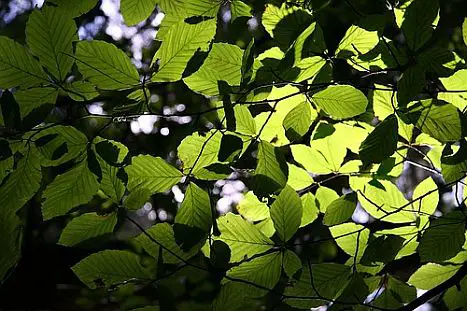
A leaf is the primary organ of any plant and just like human organs, a leaf is essential for the survival of a plant, until it itself stops it food making process and conserves nutrients and water during winters. Typically a leaf is a thin, flattened organ borne above the ground by plants to get access to sunlight and carbon dioxide in the atmosphere. The shape and size of the leaf maximizes the surface area exposed to light and promotes the photosynthetic function. Moreover, leaves are naturally arranged on a plant in such ways so as to expose their surface to light as efficiently as possible and without shading other leaves.